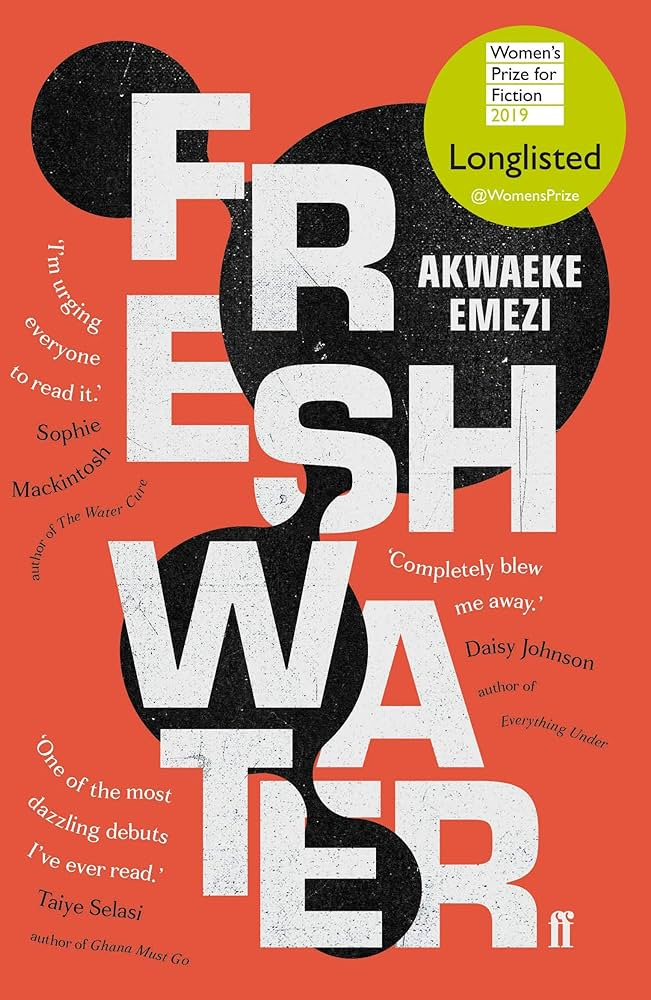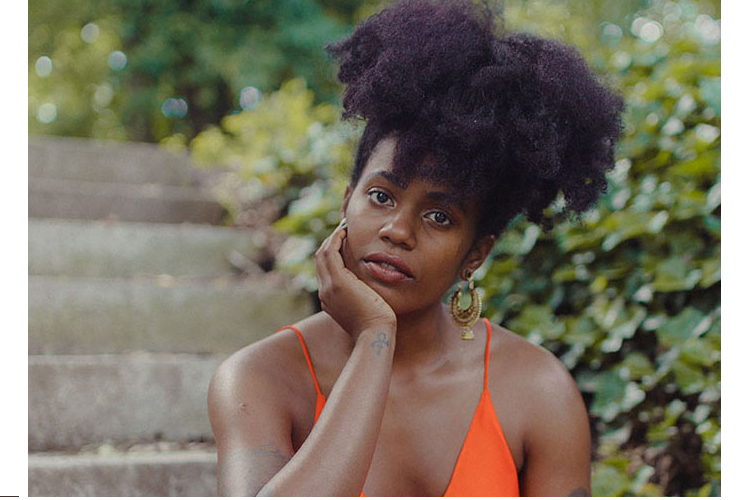From the Women’s Prize Archives.
Akwaeke Emezi was longlisted for the 2019 Women’s Prize for Fiction with Freshwater. We caught up with Akwaeke to talk about Igbo ontology, revisiting trauma through fiction and what they are working on next.
Ada, the heroine of Freshwater, is not the narrator of her own story – her tale is told by ancient souls who inhabit her body. Why did you want to tell the story in this way?
Ada is an ogbanje, which is an embodied Igbo spirit. It was important to me to center Freshwater in Igbo ontology and make it clear that this story about an ogbanje is rooted in something real; it isn’t a fairytale or a metaphor or a literary conceit.
In his book Of Water and the Spirit, Malidoma Somé points out that the reason indigenous African realities aren’t considered valid is because of colonialism, because a group of people showed up and violently displaced what we had understood to be real for centuries and generations. In a 1998 interview, after winning the Nobel Prize, Toni Morrison stated, “I stood at the border, stood at the edge and claimed it as central. Claimed it as central, and let the rest of the world move over to where I was.” I’ve mentioned this Morrison quote in almost every public interview or event I’ve done since Freshwater was published because my aim with this book is to shift the center back to these marginalized ontologies, to displace the mainstream Western realities I was raised with, and connect a story to something much older, something true.
There are so many readers inhabiting worlds like this, but the only language available to them is often one of pathology—either it’s a mental illness or in a more religious context, it’s some sort of demonic possession. Freshwater gives permission for other possibilities, worlds that colonialism cut us off from, different ways of being, and I am so grateful that it’s been able to help people navigate their own embodiments.
You’ve said the novel is semi-autobiographical, was fictionalising your own lived experience a difficult process?
Oh, it was terribly difficult to write. There was a lot of trauma revisited, and doing so through the lens of Igbo ontology was unfamiliar and terrifying, especially at first. On a craft level, translating such a complex world into a literary work that would be coherent but still remain true to its original sensibility was an immense challenge, and I couldn’t have done it without my editor at Grove, Peter Blackstock. We cut about 10,000 words from the first draft and really worked the book into a distilled and clear version of itself. I’m very proud of what we accomplished together.

The existence of a spiritual world is fact within the novel, spirits aren’t merely used as a ‘magical realist’ device. Does this reflect your own spiritual beliefs?
Yes, that spiritual world is fact outside of the novel as well. It’s why I make it clear that Freshwater is an autobiographical novel, because I really want to challenge readers to think outside their own centers and explore the possibility of there being multiple realities that exist at the same time, the spiritual world in Freshwater being one of them. When we think about whose realities we center and frame as ‘fact’ and whose realities we dismiss and marginalize as ‘myth’ or ‘superstition’, I want people to consider how colonialism and white supremacy influence those assessments.
Which writers most inspire you?
I’m a huge fan of Helen Oyeyemi’s work, she does such spectacular things with stories!
What are you working on next?
I have a young adult novel called Pet coming out this autumn, and I’m very excited for that. It’s about a young girl who lives in a future where the revolution has succeeded, the good guys have won, and so on—but then a creature comes through one of her mother’s paintings and tells her there’s a monster in her best friend’s house. So the question becomes, how do you save the world from monsters if no one believes they exist anymore?
I’m also in edits for my second adult novel, The Death of Vivek Oji, which I believe comes out next year, and I just turned in the first draft of the novel that’s coming after that, so there’s a quite a lot in the pipeline! I can’t wait to share these worlds with readers, it’s my favorite part of the job.








